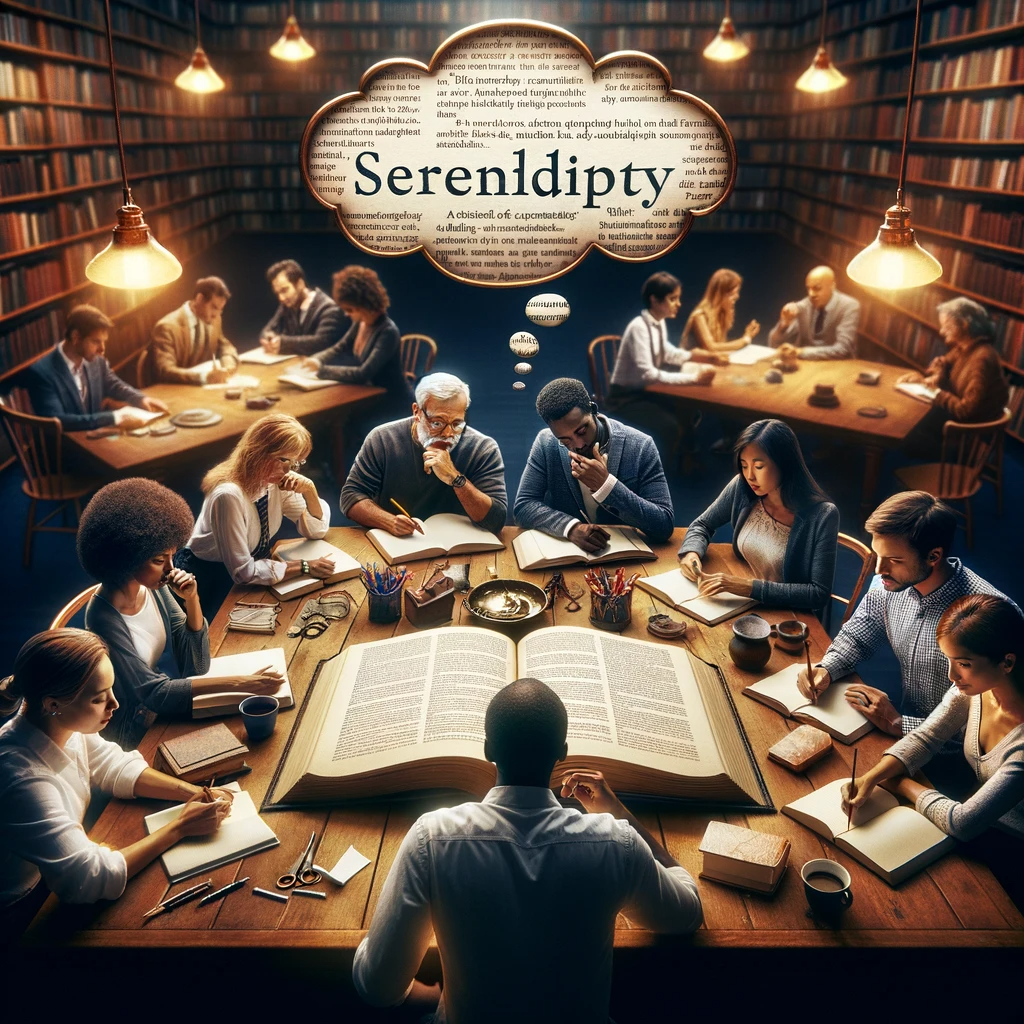Crafting Fate: Mastering the Use of ‘Serendipity’ in a Sentence
The English language is a treasure trove of words that convey more than just a basic meaning; they evoke emotions, tell stories, and add depth to our communications. Among these is the word ‘serendipity’ – a term that captures the essence of happy discoveries made by chance. Mastering the use of ‘serendipity’ in a sentence is not just about grammatical precision; it’s about infusing your narrative with a sense of wonder and delight. In this comprehensive exploration, we delve into the art of seamlessly integrating ‘serendipity’ into our linguistic practice, enhancing the caliber of our storytelling and descriptions.

The Nuances of ‘Serendipity’
To wield ‘serendipity’ effectively, it is essential to understand its nuances. This term originates from the fairy tale ‘The Three Princes of Serendip’, whose protagonists were always making discoveries, by accidents and sagacity, of things they were not in quest of. It’s the art of finding something good without looking for it, and its use in language carries that sense of pleasant surprise and fortuitous happenstance.
Incorporating ‘Serendipity’ into Storytelling
The magic of ‘serendipity’ can turn a simple sentence into an enchanting narrative hook. For example, “It was serendipity that led her to the old, hidden bookstore, and within its dusty shelves, she found not just rare books but a new direction for her life.” In this sentence, ‘serendipity’ sets the stage for an unforeseen, life-changing discovery, encapsulating the protagonist’s journey in a single, powerful word.
Descriptive Writing and ‘Serendipity’
Descriptive writing benefits immensely from ‘serendipity’, enhancing the imagery and emotional impact. Consider the sentence, “The hiker’s stumble upon a serendipitous clearing in the forest, bathed in sunlight, offered a much-needed respite and a breathtaking view he could never have planned to find.” Here, ‘serendipity’ adds a layer of unexpected joy and appreciation for the beauty discovered by chance.
Using ‘Serendipity’ in Daily Language
‘Serendipity’ isn’t reserved for grand tales alone. It can also bring a sprinkle of magic to everyday language. For instance, “Finding an old friend in a city of millions was nothing short of serendipity,” transforms an ordinary event into an extraordinary encounter.
Crafting Sentences for Emotional Impact
‘Serendipity’ has the power to convey complex emotional landscapes. In the sentence, “Their eyes met by serendipity, and in that glance, they found the silent answer to a question neither had dared to ask,” the word conveys an entire narrative of chance encounters leading to profound revelations.
Conclusion
Embracing ‘serendipity’ in our writing allows us to paint with a palette of emotions and experiences, enriching our narratives with depth and a sense of awe. Whether it’s in storytelling, descriptive prose, or everyday conversation, mastering the use of ‘serendipity’ can transform our sentences into captivating tales of the unexpected joys of life.